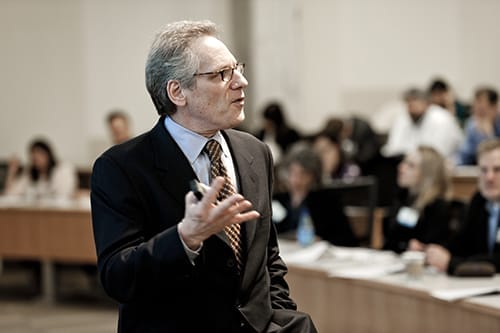At Wharton way back in the mid-’90s, even as I prepared for a hard-charging business career, my plan always included having children. I had no illusion that it was going to be easy, but nothing about achieving where I had gotten to thus far was. It would of course take planning and a lot of hard work, but I assumed that a path toward work and family integration—if I wanted it and was willing to work at it—would illuminate itself. Twenty years later, though, Wharton students do not share those same assumptions.
Stewart D. Friedman’s important new book Baby Bust: New Choices for Men and Women in Work and Family, compares sentiments about work/life integration from the Wharton undergraduate Class of 1992 with those of the Class of 2012, and uncovers some alarming trends.
In the Class of 1992, nine out of 10 women reported that they planned to have or adopt children, according to Friedman’s research, but by 2012 only slightly more than half said they would or probably would.
 More than 20 years after the Class of 1992 graduated, not only have we come no closer to illuminating a sustainable path to work/life integration, we have lurched backward.
More than 20 years after the Class of 1992 graduated, not only have we come no closer to illuminating a sustainable path to work/life integration, we have lurched backward.
Friedman serves as Wharton’s Practice Professor of Management, as well as director of the Wharton Work/Life Integration Project.
Some other key findings of Friedman’s Baby Bust include:
— Faced with mounting debt, the prospect of “extreme jobs” with long hours, and conflict between work and family life, more men are also deciding not to become parents.
— Women are challenging the notion of motherhood as a “given,” focusing instead on networks of friends and making a social impact through their career.
— Men in the Class of 2012 are similar to the women in the Class of 1992. They believe in the ability of partners to have a family and thriving careers, while the women of Class of 2012 are not as optimistic about equitable sharing on the home front. They face the prospect of a family and work life with “a mix of resignation and realism.” Their solution is either to not have children or take up traditional gender roles.
The Class of 2012 articulated my reason for leaving the workforce. I couldn’t find a sustainable life for my family and my work. Friedman’s study identifies a sobering reality check made by post-millennial undergrads: They are forsaking a sustainable work/life integration, redefining family as not including children and bracing themselves for even more extreme work.
Corporate America has failed this generation by forcing them to make a choice: Either don’t have children or resume traditional roles. We have made no major strides in revamping our institutions to provide another option to our best and brightest.
As I prepare to re-enter the workforce, having taken time from my “extreme career” to raise my children, I understand the resignation felt by the Class of 2012. As an entrepreneur creating a website targeted to moms, a site for which I will want and need to hire moms, the fact that young business students are choosing not to become parents has implications for the future workforce. In short, we are on a path leading back to pre-gender equality, a path toward a stratified society in which only professionals work and nonprofessionals raise families.
Thankfully, Baby Bust proposes solutions.
We need a complete reframing of the entire work/life discussion. Let’s be clear: Having “balance” as a goal is not realistic and connotes a zero-sum game. We must shift the focus to results, leadership and performance in all aspects of our lives. As Friedman writes, let’s “encourage creative thinking about practical ways of making life better in all its different parts.” We need to move from ad hoc “family friendly programs” to a “fundamentally different mindset.”
We must strengthen the “infrastructure of support” through policies such as world-class child care, portable health care, student debt relief, education reform and new ways to help people find a realistic path to actually sustaining the work/life balance.
The time has come to show models of successful sustainable paths. This is not just a woman’s issue but a workforce issue. Instead of trying to find the solution, let’s try and find many solutions—flexible work or project work, for instance—and understand that one may fit better than another at different stages of our lives. There are many models of alignment.
Baby Bust forces us to acknowledge that there are consequences to not addressing the very real, timeless dilemma of work and family integration. CEOs please take note, and take action. Otherwise, who knows what Friedman will find with the class of 2032.
Editor’s note: Baby Bust was released on Oct. 15, 2013. Learn more about this book at the Wharton Digital Press website. E-books and paperbacks are available wherever books are sold.

























